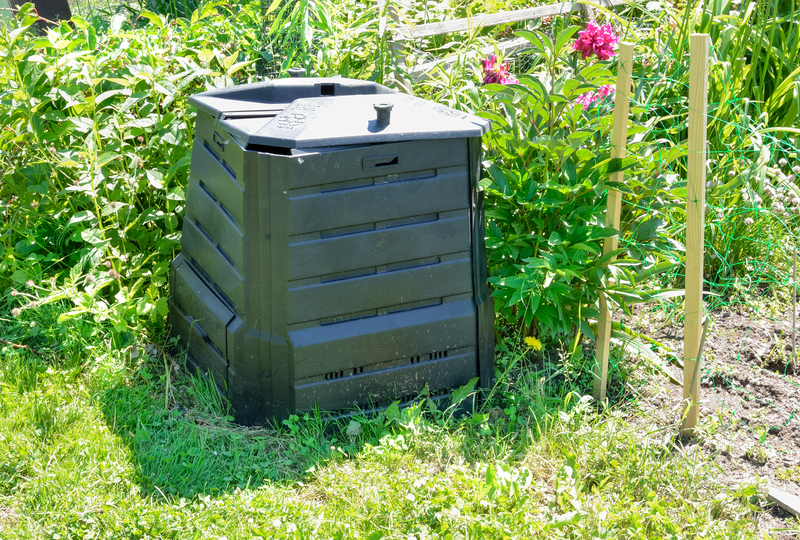Ocean Pollution: Paths to a Solution
Posted on 20/12/2024
Ocean pollution is a critical global issue impacting marine ecosystems and human life. It is caused by a range of pollutants, including plastic waste, chemicals, heavy metals, oil spills, and more. Addressing this problem is essential for sustaining marine biodiversity, ensuring human health, and maintaining the balance of the Earth's ecosystems. In this article, we will explore various paths to mitigate and ultimately solve ocean pollution.
The Importance of Tackling Ocean Pollution
Oceans cover over 70% of the Earth's surface and play a crucial role in regulating the climate and supporting a diverse range of marine species. Ocean pollution harms marine life, disrupts habitats, and poses significant risks to human health through contaminated seafood and water sources.

Path 1: Reducing Plastic Waste
Plastic waste is one of the most pervasive pollutants in the ocean, with millions of tons of plastic entering the oceans each year.
Implementing Stronger Regulations
Governments can play a significant role by enacting and enforcing stricter regulations on plastic production, usage, and disposal. For example, banning single-use plastics and promoting reusable alternatives can significantly reduce plastic waste.
Promoting Recycling and Waste Management
Encouraging recycling and improving waste management systems can help divert plastic from oceans. Public awareness campaigns and incentives for proper waste disposal can also make a big difference.
Innovative Technologies
Innovations such as biodegradable plastics and advanced recycling techniques can also contribute to reducing plastic pollution. Investing in research and development can yield new solutions for tackling this issue.
Path 2: Reducing Chemical and Agricultural Runoff
Chemicals and nutrients from agricultural runoff and industrial processes can drastically impact marine ecosystems, leading to issues such as algal blooms and dead zones.
Adopting Sustainable Agricultural Practices
Implementing sustainable farming practices, such as reduced use of pesticides, proper waste management, and organic farming, can minimize harmful runoff into the oceans.
Improving Wastewater Treatment
Upgrading wastewater treatment plants to better filter out harmful chemicals before they reach the ocean can significantly reduce pollution levels. Additionally, promoting the use of eco-friendly household products can have a positive impact.
Path 3: Combating Oil Spills
Oil spills are catastrophic events that can devastate marine ecosystems and economies. Prevention and rapid response are key to minimizing their impact.
Implementing Stricter Industry Regulations
Governments must enforce stringent regulations and safety standards for oil drilling, transportation, and storage to prevent spills. Regular inspections and penalties for non-compliance are critical in maintaining safety.
Enhancing Oil Spill Response Mechanisms
Investing in advanced clean-up technologies, training responders, and establishing effective response protocols can aid in mitigating the damage caused by oil spills. International cooperation is also essential to address spills that cross national boundaries.
Pros and Cons
Pros:
- Improves marine biodiversity and health.
- Reduces risks to human health from contaminated seafood and water.
- Preserves ecosystems and supports sustainable fishing industries.
Cons:
- High cost and investment required for advanced technologies and infrastructure improvements.
- Potential resistance from industries and communities to regulatory changes.
- Challenges in global coordination and enforcement of pollution control measures.
Tips for Individuals
- Reduce, Reuse, Recycle: Minimize plastic use and recycle whenever possible.
- Avoid single-use plastics: Opt for reusable bags, bottles, and containers.
- Support eco-friendly products: Choose products that are sustainably produced and free from harmful chemicals.
- Participate in clean-up initiatives: Join local beach or river clean-up events.
- Spread awareness: Educate others about the importance of reducing ocean pollution.

Takeaways
- Ocean pollution is a complex global issue that requires collective action from governments, industries, communities, and individuals.
- Strong regulations, innovative solutions, and sustainable practices are essential for tackling different types of pollutants.
- Everyone has a role to play, from reducing personal plastic use to supporting policies aimed at protecting our oceans.
Conclusion
Solving the issue of ocean pollution is not a simple task, but it is essential for the health of our planet and future generations. By taking comprehensive and coordinated actions, we can make significant strides in reducing ocean pollution and preserving our marine ecosystems. Governments, industries, communities, and individuals all have a role to play in this crucial endeavor. The paths to a solution are clear, and with dedication and effort, we can ensure that our oceans remain vibrant and life-sustaining for years to come.
Latest Posts
DIY Paper Recycling at Home in 6 Steps
Advance Your Recycling Approach
Plant-Based Plastics: Future Innovations






